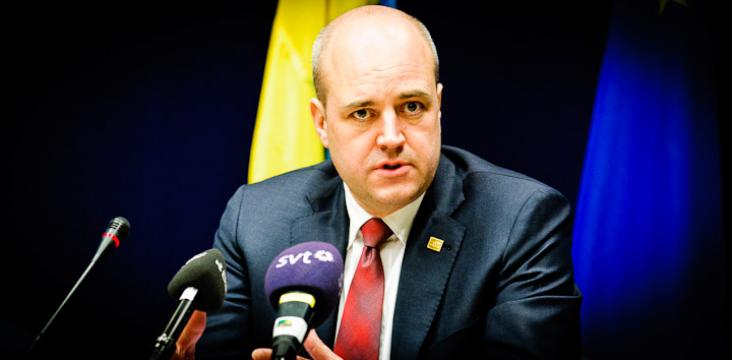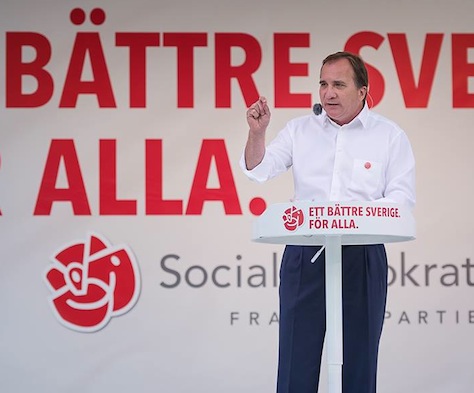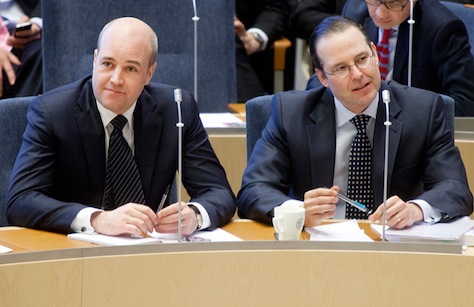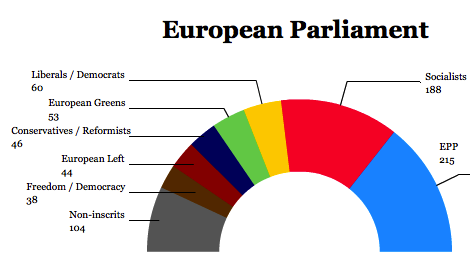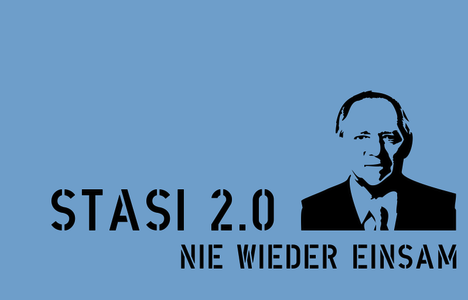There are two ways of looking at Sweden’s approach to immigration policy.![]()
Under one view, the country’s generous asylum policy, with respect to Bosnia and Herzegovina in the 1990s as much as Syria today, isn’t just a human rights cause. It’s also an opportunity to buttress Sweden’s much-vaunted welfare system as birth rates decline and its population becomes older. The creation of a well-integrated, highly-skilled, prosperous and genuinely happy class of ‘New Swedes’ could one day provide a template for 21st century liberal European (and Scandinavian) values.
Under another view, the country’s increasing immigrant population is becoming ever more isolated from mainstream social and economic networks. That, in turn, has created a quasi-permanent tier of second-class immigrants without the tools or the social capital to rise to prosperity within Swedish society, and that’s weakening a welfare system already under demographic strain. At worst, it is engendering resentment among Sweden’s new immigrants and potentially, a turn to radical Islam, thereby threatening Sweden’s liberal values. Even for Syrian professionals who now live in Sweden, securing housing, employment and a sense of normalcy often prove elusive.
* * * * *
RELATED: Löfven not to blame for probable early Swedish elections
* * * * *
Having secured a budget deal for 2015 (and, theoretically, through 2022) between his center-left government and the center-right opposition, the four-party Alliance, Swedish prime minister Stefan Löfven will narrowly avoid a snap election in March that could have strengthened the third force of Swedish politics, the anti-immigration Sverigedemokraterna (SD, Sweden Democrats), which won 12.9% of the vote in last September’s general election and 49 seats in the Riksdag, Sweden’s unicameral parliament.
Before Löfven struck the budget deal, polls showed that the Sweden Democrats could win as much as 17.5% in fresh elections, and that’s even while its charismatic, young leader Jimmie Åkesson was still officially on leave, due to exhaustion following the September vote.
Under the terms of the deal, the so-called ‘December Agreement,’ Löfven agreed to adopt the center-right’s proposed budget for 2015, though the Alliance agreed not to reject his government’s budgets in future years. The two blocs will also cooperate on a range of issues from defense and security policy to energy policy. It pushes Sweden one step closer toward a ‘grand coalition’ government, leaving both the Sweden Democrats and the the far-left Vänsterpartiet (Left Party) in opposition to the agreement. Continue reading Despite budget deal, Sweden must address immigration woes
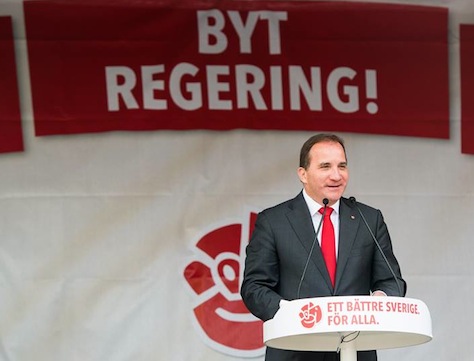
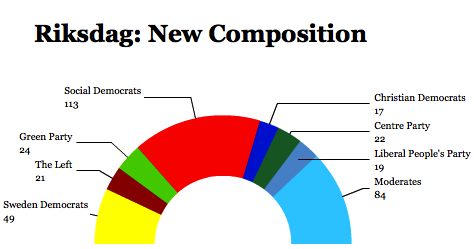
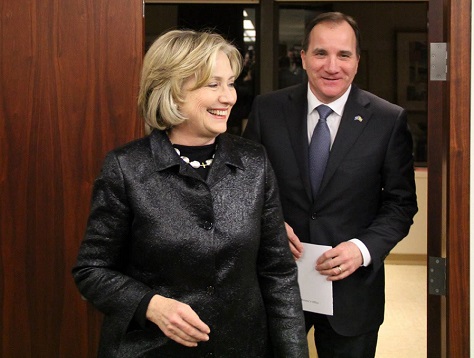
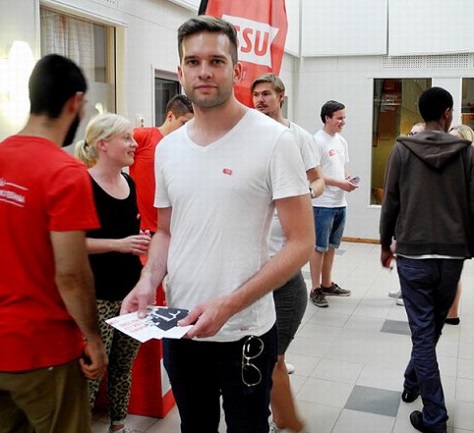

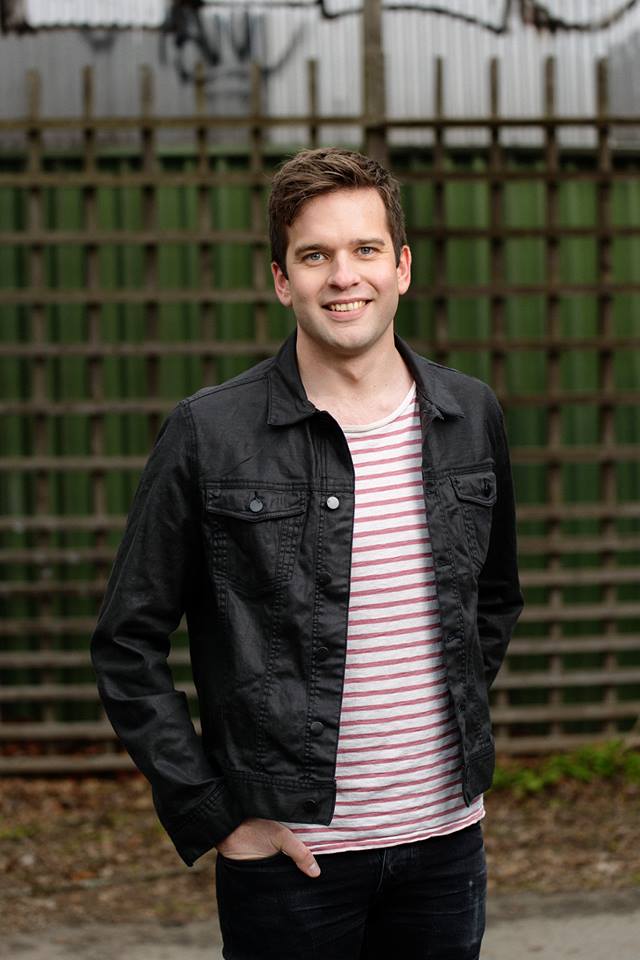

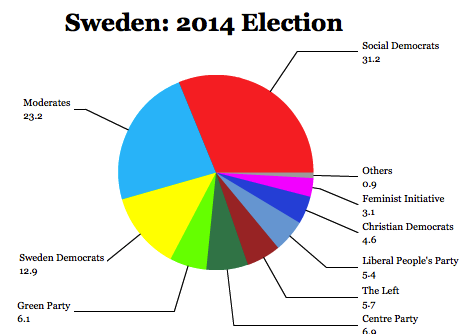 If the big loser of the election was Reinfeldt’s center-right Moderata samlingspartiet (Moderate Party), which lost 23 seats, the big
If the big loser of the election was Reinfeldt’s center-right Moderata samlingspartiet (Moderate Party), which lost 23 seats, the big 